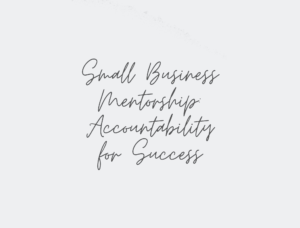Introduction
Are you tired of 9-5? Are you interested in leading and creating meaningful work? Going from employee to entrepreneur is exciting but demands planning. Our manual covers everything from self-assessment to business startup. Aspiring entrepreneurs, corporate employees seeking a change, and small business owners can learn from this guide. Explore career growth opportunities by starting your own business.
The famous blogger Richard Branson remarked, “Entrepreneurship is about turning what excites you in life into capital so that you can do more of it and move forward with it.” This remark defines thinking like a business rather than an employee.
Understanding the Mindset Shift
Going from employee to entrepreneur demands a big mindset shift. Employees frequently have system-defined roles and functions. However, entrepreneurs set their company’s vision, strategy, and operations. This requires responsibility, proactivity, and resilience in unpredictable times. Though tough, changing your mindset is crucial to entrepreneurial success. Rather than just beginning a business, entrepreneurship requires initiative, innovation, and resilience.
Identifying Your Passion and Strengths
Self-Reflection on Interests and Skills
Business self-reflection comes first and foremost. Take time to consider your talents, hobbies, and aspirations. Which activities or careers interest you? What could you do well? Your passion may fuel your business, helping you solve difficulties and stay committed. After all, you can enjoy establishing a business around your passion.
Aligning Passion with Business Opportunities
Next, relate your interest to business changes. Market research is essential to understanding the competitors, client needs, and business you’re interested in. Could you see if your interest meets a market need or solves a problem? Your business idea can succeed if it meets a market need and your interest.
Leveraging Personal Strengths for Success
Skills are essential for company success. Could you use your skills at work once you know them? If you’re skilled at networking, start a business that needs meeting clients or partners. Remember that your abilities provide you an edge and can help your firm develop.
Navigating the Planning Phase
First, figure out what you’re good at and what you’re excited about. Then, start making plans for your business. You need to get the money you need, do a thorough study of the market, and write a good business plan at this point.
Market Research
You must research the market to determine if your business idea will succeed. It reveals your competitors, target market, market trends, and business issues. This expertise will help you improve your business idea and find market entry strategies. Use the Internet, polls, interviews, and business studies to gather information.
Drafting a Business Plan
A well-written company strategy guides your entrepreneurial journey. It should describe your firm, who you intend to sell to, how you’ll arrange it, and your revenue projections. A great business plan can help you run your business and receive more money from investors and banks.
Financing Your Business
Starting a business costs money. You may need to “bootstrap” your firm or acquire loans, handouts, startup investors, or venture capitalists. Be honest about how much money you need and choose a funding method that meets your business goals and risk tolerance.
Building a Personal Brand
Establishing an Online Presence
Business owners must create a strong internet profile to promote their brands abroad. A decent website is like an online shop; social media enables you to communicate with clients. Use SEO to boost your site’s search engine rankings, and consider using blogs or videos to demonstrate your business expertise and build client trust.
Networking and Relationship Building
Entrepreneurs may build relationships, gain advice, discover business partners, and find new customers by networking. Attend workshops, meetups, and events in your field to meet like-minded people. LinkedIn can help you connect with industry peers and expand your network. Strong relationships can lead to business, teamwork, or word-of-mouth advertising.
Crafting a Unique Selling Proposition
Your USP distinguishes your products or services. Shows its unique features and benefits. Knowing your target and their needs helps you create a powerful USP. Could you describe how your product or service fits those needs? Your USP should concisely and engagingly describe your business’s unique value.
Overcoming Challenges
Things going wrong and having trouble are part of running a business. A big part of turning your idea into a company is getting past these issues. In order to get stronger and more resolved and to learn from mistakes, you have to deal with setbacks and failures.
Handling Setbacks and Failures
Failures are only stepping stones to success. These issues are opportunities to learn and grow, not insurmountable obstacles. Consider what went wrong and what may be improved, and then make informed, rational decisions.
Developing Resilience and Perseverance
Resilience is the ability to recover from setbacks, whereas perseverance is the will to continue. A businessperson needs these traits. To develop endurance, stay positive, create reasonable objectives, and take care of yourself. Setting goals, building a support system, and drawing from your heart and vision may motivate you.
Learning from Mistakes
Entrepreneurs make mistakes. Learn from mistakes, not avoid them. Each mistake teaches you something new to improve your approaches and decisions. Learn from every mistake. All successful entrepreneurs learn from their mistakes. They succeeded because of these lessons.
Taking the Leap
Quitting Your Job Strategically
From employee to business, planning is important. Please have a solid business strategy, enough savings to cover your living expenses while starting your business, and a market understanding before starting your employment. Consider when to leave based on your employment, the job market, and your situation.
First Steps as an Entrepreneur
First-time business owners should register with the government, set up their workspace, and hire. You should begin. It would be best if you also implemented your marketing plan instantly to attract people. It may seem overwhelming, but focus on the objective and take small steps.
Celebrating Small Wins
Businesses should celebrate modest achievements to maintain motivation. Even though the objective is far off, you should be proud of your progress. Your first customer, sale, or positive feedback should be celebrated. These happy times show you how far you’ve gone and motivate you.
Sustaining Entrepreneurial Success
To be an entrepreneur, you need to do more than start a business. Taking care of that business and making it grow over time is also important. To keep your business going strong, do these three things:
Continuous Learning and Adaptation
Good entrepreneurs learn constantly. They track market developments, customer preferences, and industry trends to improve their business plans. They embrace change to grow and learn. Encourage a culture of learning and change in your firm to stay ahead of the competition.
Scaling Your Business
Your firm grows, makes more money, and cuts costs when you scale. A solid team, smart planning, and effective systems are optimal for this. Keep your products or services high-quality, but sell or automate less vital operations. To keep clients pleased and loyal during growth, make your products and services high-quality.
Giving Back to the Entrepreneurial Community
Business entrepreneurs may benefit their communities. You can accomplish this by helping future entrepreneurs, investing in local businesses, or funding entrepreneurship programs. Giving back improves the business world, builds your network, boosts your image, and gives you purpose and satisfaction. Remember that other entrepreneurs’ success affects you in two ways.
Conclusion
Ups and downs will affect your firm. Tough, willing to learn, and quick to adapt to market changes are needed to thrive. But conquering hurdles and growing your business will make you successful. Staying focused, enjoying small wins, and giving back to the business community are also important. Keep going—every step, failure, and success takes you closer to your goals. Remember that entrepreneurship goes beyond business. Career advancement, impact, and value creation are also significant.





